Tullian Tchividjian's Blog, page 30
November 21, 2011
The Verdict Is In
 As you all know too painfully well, relationships flounder in an environment of judging. Both the Bible and our experience teach us that where judgment reigns relationships are ruined.
As you all know too painfully well, relationships flounder in an environment of judging. Both the Bible and our experience teach us that where judgment reigns relationships are ruined.
At some level, every relationship is assaulted by an aroma of judgment–this sense that we will never measure up to the expectations and demands of another. Critical environments are contexts which (while never explicitly stated) shout: "my approval of you, love for you, and joy in you depends on your ability to measure up to my standards, to become what I need you to become in order for me to be happy." It's a context in which achievement precedes acceptance. We've all felt this. We've felt it at school, in churches, in the workplace, with our friends, a boyfriend, a girlfriend, and most painfully, at home with our spouses, our children, our siblings, and our parents. This is why any relationship where criticism is constant, where you always feel like you're being evaluated and falling short, is an unhappy relationship.
I his book Who Will Deliver Us? Paul Zahl writes:
I wonder if any of us are strong enough to withstand the perceived judgments upon our lives, which touch the fears within. Have you ever tried to win the favor of a person who actively dislikes you? To get him to like you, you may have changed your style of dress. You may have altered your schedule. You may have stopped something you've been doing or started something new. You may have carried out their wishes to the last detail. You may tried once, then again, then a thousand times. But you have not won from this person the affirmation you so deeply desire. Judgment steamrolls over most of us.
Can you relate to that? I can.
 The deepest fear we have, "the fear beneath all fears", is the fear of not measuring up, the fear of judgment. It's this fear that creates the stress and depression of everyday life. And it comes from the fact that down deep we all know we don't measure up and are therefore deserving of judgment. We're aware that we fail, that our best is never good enough.
The deepest fear we have, "the fear beneath all fears", is the fear of not measuring up, the fear of judgment. It's this fear that creates the stress and depression of everyday life. And it comes from the fact that down deep we all know we don't measure up and are therefore deserving of judgment. We're aware that we fail, that our best is never good enough.
The judgement of others is a surface echo of a judgment that goes deeper. So if we're living in an environment or we are in a relationship that feeds this fear of judgment with constant judging, we deflate and detach because it becomes discouragingly exhausting trying to satisfy the demands and appease the judgment of the other. We become depleted of the hope that we can ever attain the affirmation that seems so necessary for us to live and breathe and so the relationship flounders.
The fact is, that relational demand always creates relational resistance. Control produces relational chaos, demand produces relational detachment, criticism produces relational commotion.
Most preachers and parents, spouses and siblings, fall prey to the false idea that real change happens when we lay down the law, exercise control, demand good performance, and offer constant constructive criticism. And then we wonder why our spouse, or our children, or our friends, or our colleagues, or our congregants become relationally and emotionally detached from us. We are feeding their deep fear of judgement by playing the judge.
When we feel this weight of judgment against us, we all tend to slip into the slavery of self-salvation: trying to appease the judge (friends, parents, spouse, ourselves) with hard work, good behavior, getting better, achievement, losing weight, and so on. We conclude, "If I can just stay out of trouble and get good grades, maybe my mom and dad will finally accept me." "If I can work hard at the way I look, maybe my husband will finally pay attention to me." "If I can become more attentive, maybe my wife will finally respect me." "If I can change, maybe my boyfriend will finally love me." But, as is always the case, self-salvation projects experientially eclipse the only salvation project that can set us free from this oppression. "If we were confident of ultimate acquittal", says Zahl, "judgment from others would not possess the sting it does."
 The Gospel announces that Jesus came to acquit the guilty. He came to judge and be judged in our place. Christ came to satisfy the deep judgment against us once and for all so that we could be free from the judgement of God, others, and ourselves. He came to give rest to our efforts at trying to deal with judgment on our own. Colossians 2:13-14 announces, "And you, who were dead in your trespasses and the uncircumcision of your flesh, God made alive together with him, having forgiven us all our trespasses, by canceling the record of debt that stood against us with its legal demands. This he set aside, nailing it to the cross."
The Gospel announces that Jesus came to acquit the guilty. He came to judge and be judged in our place. Christ came to satisfy the deep judgment against us once and for all so that we could be free from the judgement of God, others, and ourselves. He came to give rest to our efforts at trying to deal with judgment on our own. Colossians 2:13-14 announces, "And you, who were dead in your trespasses and the uncircumcision of your flesh, God made alive together with him, having forgiven us all our trespasses, by canceling the record of debt that stood against us with its legal demands. This he set aside, nailing it to the cross."
The Gospel declares that our guilt has been atoned for, the law has been fulfilled. So we don't need to live under the burden of trying to appease the judgment we feel. In Christ the ultimate demand has been met, the deepest judgment has been satisfied. The atonement of Christ frees us from the fear of judgment.
This story told by my friend and former professor, Steve Brown, illustrates well the radical discrepancy between the ways in which we hold other people hostage in their sin and the unconditional forgiveness that God offers to us in Christ.
Do you remember the story about the little boy who killed his grandmother's pet duck? He accidentally hit the duck with a rock from his slingshot. The boy didn't think anybody saw the foul deed, so he buried the duck in the backyard and didn't tell a soul.
Later, the boy found out that his sister had seen it all. Not only that, she now had the leverage of his secret and used it. Whenever it was the sister's turn to wash the dishes, take out the garbage or wash the car, she would whisper in his ear, "Remember the duck." And then the little boy would do what his sister should have done.
There is always a limit to that sort of thing. Finally, he couldn't take it anymore-he'd had it! The boy went to his grandmother and, with great fear, confessed what he had done. To his surprise, she hugged him and thanked him. She said, "I was standing at the kitchen sink and saw the whole thing. I forgave you then. I was just wondering when you were going to get tired of your sister's blackmail and come to me."
Jesus took on himself all of the judgment we deserve from God so that we could free from the paralyzing sting of judgment that's dished out from others.
November 17, 2011
Stetzer Interview Part Two
As I mentioned in my last post, last week my friend Ed Stetzer interviewed me on his blog about my new book Jesus + Nothing = Everything. I posted the first part of the interview here. Below is the second and final part of the interview.
What is the biggest threat to Christianity inside the church?
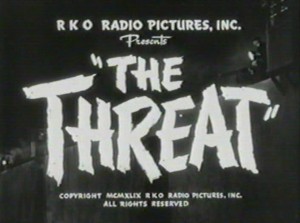 According to the Bible it's legalism. Since the fall of man in Genesis 3, the human race has been naturally prone toward works-righteousness, self-salvation projects. Having determined way back then that we could do it better on our own, we've been trying ever since.
According to the Bible it's legalism. Since the fall of man in Genesis 3, the human race has been naturally prone toward works-righteousness, self-salvation projects. Having determined way back then that we could do it better on our own, we've been trying ever since.
There's a common misunderstanding in today's church, which says there are two equal dangers Christians must avoid. On one side of the road is a ditch called "legalism"; on the other
is a ditch called "license" or "lawlessness." Legalism, they say, happens when you focus too much on law, on rules. Lawlessness, they say, happens when you focus too much on grace. Therefore, in order to maintain spiritual equilibrium, you have to balance law and grace. If you start getting too much law, you need to balance it with grace. If you start getting too much grace, you need to balance it with law. This dichotomy exposes our failure to understand gospel grace as it really is; it betrays our blindness to all the radical depth and beauty of grace.
It's much more theologically accurate to say that there is one primary enemy of the gospel—legalism—but it comes in two forms. Some people avoid the gospel and try to "save" themselves by keeping the rules, doing what they're told, maintaining the standards, and so on (I call this "front-door legalism"). Other people avoid the gospel and try to "save" themselves by breaking the rules, doing whatever they want, developing their own autonomous standards, and so on ("back-door legalism"). In other words, there are two "laws" we can choose to live by apart from Christ: the law which says, "I can find freedom and fullness of life if I keep the rules," and the law which says, "I can find freedom and fullness of life if I break the rules." Either way, you're trying to "save" yourself, which means both are legalistic because both are self-salvation projects. So what some call "license" is just another form of legalism.
This distinction is super important because the biggest lie about grace that Satan wants the church to buy is the idea that it's dangerous and therefore needs to be kept it in check. The perceived fear is this: if we think too much and talk too much about grace and the radical freedom it brings, we'll go off the deep end with it. We'll abuse it. By believing that lie, we not only prove we don't understand grace, but we violate gospel advancement in our lives and in the church by perpetuating our own slavery. The truth is, disobedience happens not when we think too much of grace, but when we think too little of it.
As a pastor, one of my responsibilities is to disciple people into a deeper understanding of obedience—teaching them to say no to the things God hates and yes to the things God loves. All too often I've wrongly concluded that the only way to keep licentious people in line is to give them more rules—to lay down the law. The fact is, however, the only way licentious people start to obey is when they get a taste of God's radical, unconditional acceptance of sinners. What licentious people need is a greater understanding of grace, not a governor on grace. Grace alone melts hearts and changes us from the inside out. Progress in obedience happens only when our hearts realize that God's love for us does not depend on our progress in obedience.
A "yes, grace—but" disposition is the kind of fearful posture that keeps legalism swirling around in our hearts and in the church.
What is the "now power" of the Gospel and what difference does it make?
I once assumed (along with the vast majority of professing Christians) that the gospel was simply what non- Christians must believe in order to be saved, while afterward we advance to deeper theological waters. But I've come to realize that once God rescues sinners, his plan isn't to steer them beyond the gospel but to move them more deeply into it. We never outgrow our need for the gospel. Because I am a daily sinner, I need God's daily distributions of grace that come my way as a result of the finished work of Christ.
 When God's good news met me in my dark place during the summer of 2009, I started to see the many-faceted dimensions of the gospel in a more dazzling way. It's almost as if, for me, the gospel changed from something hazy and monochromatic to something richly multicolored, vivid, and vibrant. I was realizing in a fresh way the now-power of the gospel—that the gospel doesn't simply rescue us from the past and rescue us for the future; it also rescues us in the present from being enslaved to things like fear, insecurity, anger, self-reliance, bitterness, entitlement, and insignificance. Through my pain, I was being convinced all over again that the power of the gospel is just as necessary and relevant after you become a Christian as it is before.
When God's good news met me in my dark place during the summer of 2009, I started to see the many-faceted dimensions of the gospel in a more dazzling way. It's almost as if, for me, the gospel changed from something hazy and monochromatic to something richly multicolored, vivid, and vibrant. I was realizing in a fresh way the now-power of the gospel—that the gospel doesn't simply rescue us from the past and rescue us for the future; it also rescues us in the present from being enslaved to things like fear, insecurity, anger, self-reliance, bitterness, entitlement, and insignificance. Through my pain, I was being convinced all over again that the power of the gospel is just as necessary and relevant after you become a Christian as it is before.
The gospel liberates us to be okay with not being okay. We know we're not okay—though we try very hard to convince ourselves and other people that we're basically fine. But the gospel tells us, "Relax, it is finished. The pressure's off."
Because of the gospel, we have nothing to prove or protect. We can stop pretending. We can take off our masks and be real. The gospel frees us from trying to impress people, appease people, measure up for people, or prove ourselves to people. The gospel frees us from the burden of trying to control what other people think about us. It frees us from the miserable, unquenchable pursuit to make something of ourselves by using others.
The gospel frees us from what one writer calls "the law of capability"—the law, he says, "that judges us wanting if we are not capable, if we cannot handle it all, if we are not competent to balance our diverse commitments without a slip." The gospel grants us the strength to admit we're weak and needy and restless—knowing that Christ's finished work has proven to be all the strength and fulfillment and peace we could ever want, and more. Since Jesus is our strength, our weaknesses don't threaten our sense of worth and value. Now we're free to admit our wrongs and weaknesses without feeling as if our flesh is being ripped off our bones.
That's what I mean in the book when I talk at length about the "now-power" of the gospel.
Why are Christians legalists when it comes to sanctification?
The way many Christians think about sanctification is that it's a step beyond our need for Jesus and his finished work on our behalf. In other words, we tend to think of justification as step one and sanctification as step two. And once we get to step two, we never need to go back to step one. We needed Jesus a lot for justification. We need him less for sanctification. The truth is, though, that sanctification is simply getting used to your justification–it's receiving Christ's words "It is finished" into our rebellious regions of unbelief.
As Luther put it, "To progress is always to begin again"–it's going back to the already secured reality of your justification and hitting the refresh button 1000 times a day. Going forward, in other words, requires a daily going backwards.
Legalism happens when what I need to do, instead of what Christ has already done, becomes the end game of my life. The gospel tells us the determining factor in my relationship with God is Jesus' work for us, not our work for him; his performance for us, not our performance for him; his obedience for us, not our obedience. The Gospel is the good news that God doesn't relate to us based on our feats for Jesus but Jesus feats for us. The gospel tells us that God's acceptance of us is not gained by our successes or forfeited by our failures—because it's not about us!
 Martin Luther defined sin as "mankind turned inward." And sadly, the way many of us think about sanctification is terribly narcissistic. We spend too much time thinking about how we're doing, if we're growing, whether we're doing it right or not. We spend too much time pondering our failure and brooding over our spiritual successes. In short, we spend way too much time thinking about ourselves and what we need to do and far too little time thinking about Jesus and what he's already done. And what I've discovered is that the more I focus on my need to get better the worse I actually get–I become neurotic and self-absorbed. Preoccupation with my performance over Christ's performance for me makes me increasingly self-centered and morbidly introspective. This is the opposite of how the Bible describes what it means to be sanctified. Sanctification is forgetting about yourself.
Martin Luther defined sin as "mankind turned inward." And sadly, the way many of us think about sanctification is terribly narcissistic. We spend too much time thinking about how we're doing, if we're growing, whether we're doing it right or not. We spend too much time pondering our failure and brooding over our spiritual successes. In short, we spend way too much time thinking about ourselves and what we need to do and far too little time thinking about Jesus and what he's already done. And what I've discovered is that the more I focus on my need to get better the worse I actually get–I become neurotic and self-absorbed. Preoccupation with my performance over Christ's performance for me makes me increasingly self-centered and morbidly introspective. This is the opposite of how the Bible describes what it means to be sanctified. Sanctification is forgetting about yourself.
Peter only began to sink when he took his eyes off Jesus and focused on "how he was doing." Anytime our natural fixture on self is rattled, shaken, turned from itself to that Man's blood, to that Man's cross, the devil runs!
When we stop narcissistically focusing on our need to get better that is what it means to get better. When we stop obsessing over our need to improve, that is what it means to improve!
November 15, 2011
Stetzer Interview Part One
Last week my friend Ed Stetzer interviewed me on his blog about my new book Jesus + Nothing = Everything. I always enjoy Ed's thoughtful questions and his tuned-in-ness to what's going on in the Evangelical church at large and what people are really talking about.
With Ed's permission, I am posting the entire interview here in two parts. All of the material here was adapted from the book.
How can someone live without depending upon the approval of others?
This is something that we as sinful people will struggle with for the rest of our lives. None of us will ever come to a place where what people think about us (good or bad) doesn't matter to us at all. But a deep grasp of the gospel does help us to become less dependent on the approval of others because the gospel announces that all of the approval we long for and need, Christ has already secured for us. We no longer need to live under the slavish pressure of trying to earn the approval of others because Jesus has already earned God's approval for us.
In the book I tell the story of how this became real to me.
 With the merger of the church I planted and Coral Ridge back in 2009 and the leadership transition that accompanied it, a small but vocal group of long-time Coral Ridge members immediately began voicing opposition to practically any and every change we initiated. Blogs were posted, letters were circulated—some anonymously—with false accusations about me. Just three months after I arrived, a vigorous petition drive was started to get me removed. Battle lines were drawn, rumors raced. There was a crescendo of misunderstandings, frustration, and pain. Just three months in, I was ready to call it quits.
With the merger of the church I planted and Coral Ridge back in 2009 and the leadership transition that accompanied it, a small but vocal group of long-time Coral Ridge members immediately began voicing opposition to practically any and every change we initiated. Blogs were posted, letters were circulated—some anonymously—with false accusations about me. Just three months after I arrived, a vigorous petition drive was started to get me removed. Battle lines were drawn, rumors raced. There was a crescendo of misunderstandings, frustration, and pain. Just three months in, I was ready to call it quits.
About that time, I opened up my Bible and in the reading plan I was following, it so happened that the day's passages included the first chapter of Paul's letter to the Colossians.
Desperate for help from God, I read those verses and my eyes were opened to see the incredible sufficiency of Jesus with greater clarity than I'd ever experienced. In my misery I told God that I wanted my old life back. What I learned from Colossians that morning was that it wasn't so much my old life I wanted back as much as my old idols I wanted back, and God loved me too much to give them back to me.
You see, I never realized how dependent I'd become on human approval and acceptance until it was taken away. For the first time, I found myself in the uncomfortable position of being deeply disliked and distrusted. I was realizing just how much I'd been relying on the endorsement of others to validate me–to make me feel like I mattered. In and of itself, human approval and acceptance are not bad things. They are, in fact, a gift from God. But I had turned them into idols by making them my primary source of meaning and value and worth and significance, so that without them I was miserable and depressed.
The verses that set me free, specifically, were Colossians 1:9-14. In those verses the Apostle Paul says (my summary): You will grow in your understanding of God's will, be filled with spiritual wisdom and understanding, increase in your knowledge of God, be strengthened with God's power which will produce joy filled patience and endurance (v.9-12a) as you come to a greater realization that you've already been qualified, delivered, transferred, redeemed, and forgiven (v.12b-14).
What those verses liberatingly taught me was that because of Jesus' finished work for me, I already had the justification, approval, acceptance, security, freedom, affection, cleansing, new beginning, righteousness, and rescue I was longing for. I started to see the many-faceted dimensions of the gospel in a more dazzling way. I was realizing in a fresh way the now-power of the gospel–that the gospel doesn't simply rescue us from the past and rescue us for the future. It also rescues us in the present from being enslaved to things like fear, insecurity, anger, self-reliance, bitterness, entitlement, and insignificance.
It was on that day that Jesus plus nothing equals everything became for me more than a preachable tagline. It became my functional lifeline.
It was rediscovering the gospel that enabled me to see that,
Because Jesus was strong for me, I was free to be weak;
Because Jesus won for me, I was free to lose;
Because Jesus was Someone, I was free to be no one;
Because Jesus was extraordinary, I was free to be ordinary;
Because Jesus succeeded for me, I was free to fail.
You talk about how Christians like to add to the Gospel ("Christianity and …"). What does it mean to add to the Gospel?
Protestants have always embraced that we are justified by grace alone, through faith alone, in the finished work of Christ alone–that our good works don't save us or merit favor with God. But once we're saved, we fall into the trap of adding a lot of things to the gospel. It's always Jesus + Something = Everything.
 Remember C. S. Lewis's "The Screwtape Letters." As the high-ranking demon Screwtape trains his protÈgÈ Wormwood in satanic strategies against Christians, he discusses how (in Screwtape's words) "to keep them in the state of mind I call 'Christianity And.'" Screwtape gives a few examples (reflecting some fads from Lewis's time, the mid-twentieth century): "Christianity and the New Psychology, Christianity and the New Order, Christianity and Faith Healing," and even "Christianity and Vegetarianism." These were all various manifestations of the urgent, Devil-fostered temptation believers face to add something else to Jesus and the gospel—all because of those deficiencies we sense in our own experience.
Remember C. S. Lewis's "The Screwtape Letters." As the high-ranking demon Screwtape trains his protÈgÈ Wormwood in satanic strategies against Christians, he discusses how (in Screwtape's words) "to keep them in the state of mind I call 'Christianity And.'" Screwtape gives a few examples (reflecting some fads from Lewis's time, the mid-twentieth century): "Christianity and the New Psychology, Christianity and the New Order, Christianity and Faith Healing," and even "Christianity and Vegetarianism." These were all various manifestations of the urgent, Devil-fostered temptation believers face to add something else to Jesus and the gospel—all because of those deficiencies we sense in our own experience.
Today, Screwtape's list would doubtless look different. The currently tempting formulas might include "Christianity and success," "Christianity and self-affirmation," "Christianity and
self-improvement," "Christianity and personal progress," or "Christianity and spiritual formation." There's a host of causes that might crop up: "Christianity and environmentalism," "Christianity and home schooling," "Christianity and social justice," "Christianity and diversity and tolerance," not to mention an abundance of "Christianity and political action" variations—liberal, conservative, libertarian, hope-and-change, take-back-America, whatever.
Besides those, there are plenty of extras that have timeless appeal for any and all generations: "Christianity and popularity," "Christianity and power," "Christianity and social status," "Christianity and reform," even "Christianity and tradition." It could even get more personal: "Christianity and my family", "Christianity and people liking me", "Christianity and feeling important."
The way I get at this in my own heart is to ask myself: What is the one thing, or things, that if God were to take away from me, I'd feel like I don't want to live anymore? What am I functionally depending on to make me feel like I matter?
That's the something that I'm enslaved to–the something that might be ok to enjoy, but not to worship.
To be continued…
November 11, 2011
The Burned Over Place
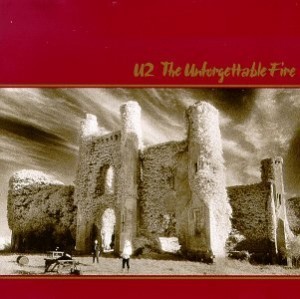 One of the best books I've read in years is a short book originally published in 1983 by Paul Zahl entitled Who Will Deliver Us? The Present Power of the Death of Christ. Dr. Zahl plumbs the depths of the Gospel for everyday life in a paradigm shifting way.
One of the best books I've read in years is a short book originally published in 1983 by Paul Zahl entitled Who Will Deliver Us? The Present Power of the Death of Christ. Dr. Zahl plumbs the depths of the Gospel for everyday life in a paradigm shifting way.
Of the book, J.I. Packer writes:
Zahl knows the authentic gospel and the 20th Century human heart and probes deeply into both.
And John Stott wrote:
A brave and honest book. An unusual combination of pastoral compassion and theological integrity.
His grasp of the demands of God's Law and the deliverance of God's Gospel is both deep and wide. But what makes this book a cut above the rest is Zahl's ability to connect the Law and the Gospel to our everyday fears, expectations, relationships, shattered dreams, and insecurities.
Speaking of the Law and the Gospel, he paints a vivid picture that reveals "our helplessness before the devastation and comprehensiveness of Divine expectation and how that helplessness creates the space for God's amazing grace and the freedom it produces":
I'm a little like the duck hunter who was hunting with his friend in a wide-open barren of land in southeastern Georgia. Far away on the horizon he noticed a cloud of smoke. Soon, he could hear the sound of crackling. A wind came up and he realized the terrible truth: a brush-fire was advancing his way. It was moving so fast that he and his friend could not outrun it. The hunter began to rifle through his pockets. Then he emptied all the contents of his knapsack. He soon found what he was looking for–a book of matches. To his friend's amazement, he pulled out a match and struck it. He lit a small fire around the two of them. Soon they were standing in a circle of blackened earth, waiting for the brush fire to come. They did not have to wait long. They covered their mouths with their handkerchiefs and braced themselves. The fire came near–and swept over them. But they were completely unhurt. They weren't even touched. Fire would not burn the place where fire had already burned.
The law is like the brush-fire. I cannot escape it. But if I stand in the burned-over place, where law has already burned its way through, then I will not get hurt. Not a hair of my head will be singed. The death of Christ is the burned-over place. There I huddle, hardly believing yet relieved. Christ's death has disarmed the law. "Thanks be to God through Jesus Christ our Lord."
Who Will Deliver Us? The Present Power of the Death of Christ (pg. 42-43)
November 8, 2011
God's Gratuitous Grace
 My friends over at the Mockingbird Blog (go subscribe now!) posted these two quotes from a couple messages that my other friend Rod Rosenbladt preached at the Cathedral Church of the Advent in Birmingham, Alabama about nine years ago. His comments (based on Romans 3-5) are ridiculously good and clear–and done in typical Rod Rosenbladt "Law first, Gospel second" fashion.
My friends over at the Mockingbird Blog (go subscribe now!) posted these two quotes from a couple messages that my other friend Rod Rosenbladt preached at the Cathedral Church of the Advent in Birmingham, Alabama about nine years ago. His comments (based on Romans 3-5) are ridiculously good and clear–and done in typical Rod Rosenbladt "Law first, Gospel second" fashion.
He begins by using the Law to diagnosis the problem (a problem, by the way, which continues even after we become Christians):
Now, look specifically at Romans 3, verses 19-20. I want to specifically focus on what it says about purpose of the law: "Now we know that whatever the law says, it says to those who are under the law, so that every mouth may be silenced and the whole world held accountable to God. Therefore no one will be declared righteous in his sight by observing the law; rather, through the law we become conscious of sin."
This is the point to which the apostle has been relentlessly grinding forward. The idolatrous and immoral Gentiles are 'without excuse'. The Jews equally 'have no excuse'. The special status of the Jews does not exonerate them.
In fact, all the inhabitants of the whole world, without any exception, are inexcusable before God, because all have known something of God and of morality, but all have disregarded and even stifled their knowledge in order to go their own way. All are guilty and condemned before God and without excuse.
Paul states in Verse 19 the purpose of the law is that "every mouth be silenced". The purpose of the law is to shut our mouths, stop us in mid-excuse and hold us accountable to God. When confronted with the law we will shut our mouths. All of the excuses we learned to use so early in life will immediately fail us. We won't say a word. As the verse goes on to say, the whole world will be held accountable to God.
In the end, God will assign one of two grades, 0 or 100, he does not grade on the curve and he will not hear our excuses. Those who have perfectly lived the law in thought, word and deed will be counted as righteous. Others like myself will be utterly doomed, check mate. Of course, Paul said earlier that "there is no one righteous, not even one". None of us can place our hope in the law.
Now what does it all mean?
You and I are not only infected from top to bottom with sin—we can't fix ourselves. Now this is difficult to say in our postmodern American society. It's counter-cultural. We believe we can fix anything, even ourselves: Positive thinking, a couple of self-help courses, and all will be fine. But the Bible, especially Romans 3 says we're wrong. I stand guilty before God and there's nothing I can do to change that. My sentence is a just one and it is death.
Then he uses the Gospel to present the solution (a solution, by the way, which continues even after we become Christians):
Now God could have erased this world and no one could have accused him of injustice if he had done that, but he did not. While under no obligation at all to us rebels he instead put in motion a plan in which he freely, graciously, and at tremendous cost to himself satisfied his own justice in our place. Into my hopeless situation Paul speaks of God acting to rescue me anyway.
Let's look at Chapter 5, verses 6 and 7: "You see, at just the right time, when we were still powerless, Christ died for the ungodly. Very rarely will anyone die for a righteous man, though for a good man someone might possibly dare to die. But God demonstrates his own love for us in this: While we were still sinners, Christ died for us."
The language of Christianity is the language of substitution. It is not primarily the language of morals. God is not presented as a mother saying "eat all your vegetables". Instead, Christianity is about a one-sided rescue, that we didn't want and certainly didn't deserve, and he did it anyway.
At the cross, Paul says God made Jesus to be sin, who himself knew no sin. Peter says he himself bore our sins in his body on the tree. Now how can this be just? How can God reckon like this? The answer is in Romans 3:24: gratuitously, or by his grace, through the ransoming that is in connection with Christ Jesus. It is not arbitrary, it's not capricious, it's not unjust for God to do this. If God died for us in Christ, God has every right having satisfied his own justice, by taking it all in our stead, to give us whatever he wants to give us.
In other words, God has his right to save us for free! He's the one who allowed himself in Christ to be crucified for our sin. He has the right to give us eternal life. Having died in our place, he has a right to reckon to us a righteousness that isn't really ours. And he does!
As Christians, we still need to hear both the law and the gospel. We need to hear the law because we are all, even after we're saved, prone to wander in a self-righteous direction. The law, said Luther, is a divinely sent Hercules to attack and kill the monster of self-righteousness–a monster that continues to harass the Redeemed. We need constant reminders that our best is never good enough and that "there is something to be pardoned even in our best works." We need the law to freshly reveal to us that we're a lot worse off than we think we are and that we never outgrow our need for the cleansing blood of Christ. In other words, we need the law to remind us everyday just how much we need the gospel everyday.
And then once we are re-crushed by the law, we need to be reminded that "Jesus paid it all." Even in the life of the Christian, the law continues to drive us back to Christ–to that man's cross, to that man's blood, to that man's righteousness. The gospel announces to failing, forgetful people that Jesus came to do for sinners what sinners could never do for themselves–that God's grace is gratuitous, that his love is promiscuous, and that while our sin reaches far, his mercy reaches farther. The gospel declares that Jesus came, not to abolish the law, but to fulfill it–that Jesus met all of God's perfect conditions on our behalf so that our relationship with God could be unconditional.
So, God's good law reveals our desperation; God's good gospel reveals our deliverer. We are in constant need of both.
The Law discovers guilt and sin, And shows how vile our hearts have been. The Gospel only can express, Forgiving love and cleansing grace.
Isaac Watts
November 4, 2011
Now I See That Which Is Done
 Last week my I was thrilled to see that my friend Justin Taylor highlighted on his blog Bo Giertz's fictional work The Hammer of God. A relatively unknown book in Evangelical circles, Justin noted that Leland Ryken–longtime literature professor at Wheaton College–referred to Giertz' book as "one of the best literary finds I have ever made." I couldn't agree more!
Last week my I was thrilled to see that my friend Justin Taylor highlighted on his blog Bo Giertz's fictional work The Hammer of God. A relatively unknown book in Evangelical circles, Justin noted that Leland Ryken–longtime literature professor at Wheaton College–referred to Giertz' book as "one of the best literary finds I have ever made." I couldn't agree more!
After sitting on my shelf uncracked for the better part of a year, I finally decided this past summer to read The Hammer of God (first published in 1941). I first heard about it from my friends Elyse Fitzpatrick and Mike Horton. I couldn't put it down. It was simply breathtaking. Giertz was a master storyteller and theologian. Both of these gifts shine brightly on every page of this book. It tells three stories (novella's) of three different pastors who learn in three different ways the nature and necessity of relying on God's grace. It is law/gospel theology in captivating narrative form. You have to read it.
To whet your appetite, I want to share one part that I found especially illuminating for preachers. I need to first give some context, though.
Set in Sweden in the early 1800-s, Henrik is a young, remarkably gifted and fiery preacher who very much looks up to Justus Johan Linder, a preacher ten years his senior. Henrik is having a crisis of faith. Bothered by the behavioral worldliness all around him, he has become widely known for his passionate pleas and exhortations for people to stop sinning. He's meticulous in his examination of sinful behavior both in and out of the pulpit. And it is bearing fruit. The church is packed every Sunday and licentious behavior is declining in the village. But, much to his surprise, "new sins" are popping up everywhere. He notices that while drinking and debauchery may be at an all time low, a self-righteous and legalistic hardness of heart has emerged in their place. While on the one hand Henrik is encouraged to see external worldliness dissipating, he's remarkably discouraged to see a cold, loveless culture developing. Not only that, but now he's beginning to realize the depth of his own sin. He feels like a hypocrite for preaching so strongly against the fruit of sin (behavior) while ignoring the deeper problem of sin's root (unbelief). In despair over his own inability to be as good as he tells other people to be, he breaks down and confesses to Linder that he's not even sure he's saved. Linder's response is pure gold:
Henrik, we must start again from the beginning. We have thundered like the storm [speaking of the way he and Henrik have preached God's Law], we have bombarded with the heaviest mortars of God's Law in an attempt to break down the walls of sin. And that was surely right. I still load my gun with the best powder when I aim at unrepentance. But we had almost forgotten to let the sunshine of the gospel shine through the clouds. Our method has been to destroy all carnal security by our volley's, but we have left it to the soul's to build something new with their own resolutions and their own honest attempts at amending their lives. In that way, Henrik, it is never finished. We have not become finished ourselves. Now I have instead begun to preach about that which is finished, about that which is built on Calvary and which is a safe fortress to come to when the thunder rolls over our sinful heads. And now I always apportion the Word of God in three directions, not only to the self-satisfied [the bad people] as I did formerly, but also to the awakened [the "good" people] and to the anxious, the heavy laden and to the poor in spirit. And I find strength each day for my own poor heart at the fount of redemption.
Henrik is captivated by the "new" way in which Linder is preaching and he asks about the results. "Do you note any difference?"
In the first place, I myself see light where formerly I saw only darkness. There is light in my heart and light over the congregation. Before, I was in despair over my people, at their impenitence. I see now that this was because I kept thinking that everything depended on what we should do, for when I saw so little of true repentance and victory over sin, helplessness crept into my heart. I counted and summed up all that they did [to clean up their act], and not the smallest percentage of debt was paid. But now I see that which is done, and I see that the whole debt is paid. Now therefore I go about my duties as might a prison warden who carries in his pocket a letter of pardon for all his criminals. Do you wonder why I am so happy? Now I see everything in the sun's light. If God has done so much already, surely there is hope for what remains.
The way Linder describes the transformation that took place in his preaching is almost identical to the transformation that took place in mine (and Chuck's-click here). I have a long way to go (bad habits die slowly), but a number of years ago a Copernican revolution of sorts took place in my own heart regarding the need to preach the law then the gospel without going back to the law as the way to keep God's favor.
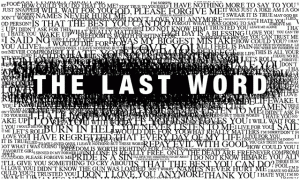 Preachers these days are expected to major in "Christian moral renovation." They are expected to provide a practical "to-do" list, rather than announce, "It is finished." They are expected to do something other than–more than–lift up before their congregations eyes Christ's finished work, preaching a full absolution solely on the basis of the complete righteousness of Another. To be sure, preachers need to "load their guns with the best powder when aiming at unrepentance", but far too often a preacher's final word to Christians is law and not Gospel. To finish a sermon asking "What would Jesus do?" instead of announcing "This is what Jesus has done!" is to betray the final word God speaks over Christians.
Preachers these days are expected to major in "Christian moral renovation." They are expected to provide a practical "to-do" list, rather than announce, "It is finished." They are expected to do something other than–more than–lift up before their congregations eyes Christ's finished work, preaching a full absolution solely on the basis of the complete righteousness of Another. To be sure, preachers need to "load their guns with the best powder when aiming at unrepentance", but far too often a preacher's final word to Christians is law and not Gospel. To finish a sermon asking "What would Jesus do?" instead of announcing "This is what Jesus has done!" is to betray the final word God speaks over Christians.
"Life is a web of trials and temptations", says Robert Capon, "but only one of them can ever be fatal–the temptation to think it is by further, better, and more aggressive living that we can have life." Given this sobering statement, it would seem that many preachers unwittingly lead their congregations "into temptation" by implying (not explicitly stating, of course) that you can live your way to life. The fact is, however, that you can only "die [your] way there, lose [your] way there…For Jesus came to raise the dead. He did not come to reward the rewardable, improve the improvable, or correct the correctable; he came simply to be the resurrection and the life of those who will take their stand on a death he can use instead of on a life he cannot." After our preaching of the law rightly pushes people under water, we all too often cause them to think that they must save themselves by giving them swimming lessons: "Paddle harder, kick faster."
I want the last word I speak over Christians when I preach to be the last word God speaks over Christians–"Paid in full." The Gospel always has the last word over a believer. Always. When it's all said and done there are two types of sermons: Jesus + Nothing = Everything or Jesus + Something = Everything.
May God raise up a generation of bold preachers who storm the gates of works-righteousness in all its forms (both religious and secular) with nothing more and nothing less than:
In my place condemned he stood, and sealed my pardon with his blood. Hallelujah, what a Savior.
October 29, 2011
What Abortion?
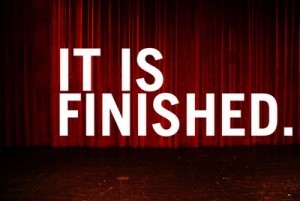 Back in June I preached a series of six sermons entitled Pictures of Grace. Of all the sermons series' I've preached, I probably enjoyed this one the most. I took our church through the Gospels and looked at various events in the life and ministry of Jesus where the shocking, counter-intuitive nature of amazing grace is on display. Each week we looked intently at how Jesus wrecked people with his grace, turning everything that makes sense in our conditional world upside-down.
Back in June I preached a series of six sermons entitled Pictures of Grace. Of all the sermons series' I've preached, I probably enjoyed this one the most. I took our church through the Gospels and looked at various events in the life and ministry of Jesus where the shocking, counter-intuitive nature of amazing grace is on display. Each week we looked intently at how Jesus wrecked people with his grace, turning everything that makes sense in our conditional world upside-down.
Well, I went back to the first of those six sermons yesterday as I was doing some research and was struck again at how crazy God's grace really is.
I began that series by by preaching from Luke 7:36-50. This is the famous account of the sinful woman (most likely a prostitute) barging into a party of religious leaders and washing the feet of Jesus with her tears of repentance. I pointed out that two rescues are happening in this passage: the obvious rescue of the immoral person but also the rescue of the moral person.
Normally when we think of people in need of God's rescuing grace, we think of the unrighteous and the immoral. But what's fascinating to me is that throughout the Bible, it's the immoral person that gets the Gospel before the moral person; it's the prostitute who gets grace; it's the Pharisee who doesn't. What we see in this story is that God's grace wrecks and then rescues, not only the promiscuous but the pious. The Pharisee in this story can't understand what Jesus is doing by allowing this woman to touch him because he assumes that God is for the clean and competent. But Jesus here shows him that God is for the unclean and incompetent and that when measured against God's perfect holiness we're all unclean and incompetent. Jesus shows him that the gospel isn't for winners, but losers: it's for the weak and messed up person, not the strong and mighty person. It's not for the well-behaved, but the dead.
[image error]I was reminded once again that Jesus came not to effect a moral reformation but a mortal resurrection (moral reformations can, and have, taken place throughout history without Jesus. But only Jesus can raise the dead, over and over and over again). As Gerhard Forde put it, "Christianity is not the move from vice to virtue, but rather the move from virtue to grace."
Wrecking every religious category he had, Jesus tells the Pharisee that he has a lot to learn from the prostitute, not the other way around.
The prostitute on the other hand walks into a party of religious people and falls at the feet of Jesus without any care as to what others are thinking and saying. She's at the end of herself. More than wanting to avoid an uncomfortable situation, she wanted to be clean-she needed to be forgiven. She was acutely aware of her guilt and shame. She knew she needed help. She understood at a profound level that God's grace doesn't demand that you get clean before you come to Jesus. Rather, our only hope for getting clean is to come to Jesus. Only in the Gospel does love precede loveliness. Everywhere else loveliness precedes love.
I closed the sermon by recalling a story that Rod Rosenbladt told me when we were together at the Gospel Coalition conference in Chicago. It's a story about a middle-aged woman who needed help from her pastor.
She went to her pastor and said, "Pastor, you know that I had an abortion a number of years ago?" "Yes," the Pastor replied. "Well, I need to talk to you about the man I've since met." "Alright," replied the Pastor.
"Well, we met a while back, and started dating and I thought, I need to tell him about the abortion. But I just couldn't. Then things got more serious between us and I thought, I need to tell him about the abortion. But I just couldn't. A while later we got engaged and I thought, I need to tell him about the abortion. But I just couldn't. Then we got married and I thought, I really need to tell him about the abortion. But I just couldn't. So I needed to talk to someone, Pastor, and you're it."
The Pastor replied, "You know, we have a service for this. Let's go through that together." So they did – a service of confession and absolution.
When they were finished, she said to him, "Now I think I have the courage to tell my new husband about my abortion. Thanks, Pastor."
And the Pastor replied to her, "What abortion?"
 What the Pharisee, the prostitute, and everyone in between, need to remember every day is that Christ offers forgiveness full and free from both our self-righteous goodness and our unrighteous badness. This is the hardest thing for us to believe as Christians. We think it's a mark of spiritual maturity to hang onto our guilt and shame. We've sickly concluded that the worse we feel, the better we actually are. The declaration of Psalm 103:12 is the most difficult for us to grasp and embrace: "As far as the east is from the west, so far does he remove our transgressions from us." Or, as Corrie ten Boom once said, "God takes our sins—the past, present, and future—and dumps them in the sea and puts up a sign that says 'No Fishing allowed.'" This seems too good to be true…it can't be that simple, that easy, that real!
What the Pharisee, the prostitute, and everyone in between, need to remember every day is that Christ offers forgiveness full and free from both our self-righteous goodness and our unrighteous badness. This is the hardest thing for us to believe as Christians. We think it's a mark of spiritual maturity to hang onto our guilt and shame. We've sickly concluded that the worse we feel, the better we actually are. The declaration of Psalm 103:12 is the most difficult for us to grasp and embrace: "As far as the east is from the west, so far does he remove our transgressions from us." Or, as Corrie ten Boom once said, "God takes our sins—the past, present, and future—and dumps them in the sea and puts up a sign that says 'No Fishing allowed.'" This seems too good to be true…it can't be that simple, that easy, that real!
It is true! No strings attached. No but's. No conditions. No need for balance. If you are a Christian, you are right now under the completely sufficient imputed righteousness of Christ. Your pardon is full and final. In Christ, you're forgiven. You're clean. It is finished.
What abortion?
October 25, 2011
How The Gospel Saved My Life
 A couple months ago Drew Dyck, managing editor of Leadership Journal, came to Ft. Lauderdale to interview me about the 2009 merger of New City Church (the church I planted in 2003) and Coral Ridge Presbyterian Church. As has been well documented, it was an incredibly painful and tumultuous year. It was the year that God brought me to the end of myself, broke my legs, and taught me grace. It was the year that the gospel saved me 18 years after I became a Christian.
A couple months ago Drew Dyck, managing editor of Leadership Journal, came to Ft. Lauderdale to interview me about the 2009 merger of New City Church (the church I planted in 2003) and Coral Ridge Presbyterian Church. As has been well documented, it was an incredibly painful and tumultuous year. It was the year that God brought me to the end of myself, broke my legs, and taught me grace. It was the year that the gospel saved me 18 years after I became a Christian.
The whole story of how I discovered the practical power and punch of the gospel during that agonizing year is the subject of my new book Jesus + Nothing = Everything. The book is an autobiographical record highlighting how God helped me rediscover the now-power of the gospel in the crucible of excruciating pain.
In the latest issue of Leadership Journal, Drew captured the heart of what happened that year in an interview he did with me entitled War and Peace, and he highlights how I survived a leadership coup by finding rest in the liberating power of the gospel.
Here's an excerpt:
I was realizing in a fresh way the now-power of the gospel—that the gospel doesn't simply rescue us from the past and rescue us for the future; it also rescues us in the present from being enslaved to things like fear, insecurity, anger, self-reliance, bitterness, entitlement, and insignificance. Through my pain, I was being convinced all over again that the power of the gospel is just as necessary and relevant after you become a Christian as it is before.
When that biblical reality gripped my heart, I was free like I had never felt before in my life. It gives you the backbone to walk into a room full of church leaders and say "this is what we're going to do and this is why we're going to do it, even if it gets me thrown into the street."
There is a fresh, sanctified I-don't-care-ness that accompanies belief in the gospel. Whether you like me or not doesn't matter, because my worth and my dignity and my identity are anchored in God's approval. Christ won all of the approval and acceptance I need.
You can read the whole thing here.
I really, really hope and pray that this story will be an encouragement to struggling and discouraged pastors. I know that many of your stories are worse than mine. It doesn't seem fair to me that just because I come from a well-known family and inherited a well-known church, that my story gets told and yours doesn't. But I've talked with many of you over the last two years and your stories have encouraged me tremendously.
God knows how deeply grateful I am for all of you pastors who are feeling empty and all by yourself. Brothers, I am with you–side by side; back to back.
October 22, 2011
Only The Gospel Makes Us Go
[image error]Michael Horton rightly warns against depending on "guidance technology" to put wind in our sails:
Like a sailboat equipped with the most sophisticated guidance technology, our Christian lives are often decked out with the latest principles for living, with spiritual guidance counselors telling us what will make life really work for us and our families. Oftentimes, brand new Christians sail out of the harbor under full sail, eager to follow the guidance system, making use of all the gadgets, enthusiastically listening to every fellow boater who has some advice to offer. Yet as many long-time believers know, eventually the winds die down and we find ourselves dead in the water. Then when storm clouds gather on the horizon, we discover that all of the guidance technology and good advice in the world cannot fill our sails so that we can return safely to the harbor. The equipment can plot our course, tell us that a storm is coming, and indicate our present location, but it cannot move us one inch toward the safety of the harbor. In other words, if we are looking for motivation in the Christian life, it cannot come from motivational principles; only the gospel fills our sails…While God's wise directions are necessary, apart from the ever present word of promise that, despite our failures at sea, God is at the helm piloting us to safety, we will eventually give up on sailing altogether. Purposes, laws, principles, suggestions, and good advice can set our course, but only the gospel promise can fill our sails and restore to us the joy of our salvation.
The Gospel Driven Life, pg. 143-144
October 18, 2011
Where To Look When You're In Trouble
 A shift has taken place in the Evangelical church with regard to the way we think about the gospel and it's far from simply an ivory tower conversation. This shift effects us on the ground of everyday life.
A shift has taken place in the Evangelical church with regard to the way we think about the gospel and it's far from simply an ivory tower conversation. This shift effects us on the ground of everyday life.
In his book Paul: An Outline of His Theology, famed Dutch Theologian Herman Ridderbos (1909 – 2007) summarizes this shift which took place following Calvin and Luther. It was a sizable but subtle shift which turned the focus of salvation from Christ's external accomplishment to our internal appropriation:
While in Calvin and Luther all the emphasis fell on the redemptive event that took place with Christ's death and resurrection, later under the influence of pietism, mysticism and moralism, the emphasis shifted to the individual appropriation of the salvation given in Christ and to it's mystical and moral effect in the life of the believer. Accordingly, in the history of the interpretation of the epistles of Paul the center of gravity shifted more and more from the forensic to the pneumatic and ethical aspects of his preaching, and there arose an entirely different conception of the structures that lay at the foundation of Paul's preaching.
Donald Bloesch made a similar observation when he wrote, "Among the Evangelicals, it is not the justification of the ungodly (which formed the basic motif in the Reformation) but the sanctification of the righteous that is given the most attention."
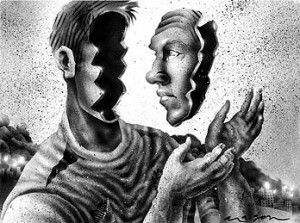 With this shift came a renewed focus on the internal life of the individual. The subjective question, "How am I doing?" became a more dominant feature than the objective question, "What did Jesus do?" As a result, generations of Christians were taught that Christianity was primarily a life-style; that the essence of our faith centered on "how to live"; that real Christianity was demonstrated in the moral change that took place inside those who had a "personal relationship with Jesus." Our ongoing performance for Jesus, therefore, not Jesus' finished performance for us, became the focus of sermons, books, and conferences. What I need to do and who I need to become, became the end game.
With this shift came a renewed focus on the internal life of the individual. The subjective question, "How am I doing?" became a more dominant feature than the objective question, "What did Jesus do?" As a result, generations of Christians were taught that Christianity was primarily a life-style; that the essence of our faith centered on "how to live"; that real Christianity was demonstrated in the moral change that took place inside those who had a "personal relationship with Jesus." Our ongoing performance for Jesus, therefore, not Jesus' finished performance for us, became the focus of sermons, books, and conferences. What I need to do and who I need to become, became the end game.
Believe it or not, this shift in focus from "the forensic to the pneumatic", from the external to the internal, has enslaving practical consequences.
When you're on the brink of despair-looking into the abyss of darkness, experiencing a dark-night of the soul-turning to the internal quality of your faith will bring you no hope, no rescue, no relief. Too often our preaching (and our counseling) is the equivalent of giving a drowning man swimming lessons: "Paddle harder, kick faster." We assume that people possess the internal power to get things right so we turn them in to themselves. But, as too many people already know, every internal answer will collapse underneath you. Turning to the external object of your faith, namely Christ and his finished work on your behalf, is the only place to find peace, re-orientation, and help. The gospel always directs you to something, Someone, outside you instead of to something inside you for the assurance you crave and need in seasons of desperation and doubt. The surety you long for when everything seems to be falling apart won't come from discovering the dedicated "hero within" but only from the realization that no matter how you feel or what you're going through, you've already been discovered by the "Hero without."
As Sinclair Ferguson writes in his book The Christian Life:
True faith takes its character and quality from its object and not from itself. Faith gets a man out of himself and into Christ. Its strength therefore depends on the character of Christ. Even those of us who have weak faith have the same strong Christ as others!
By his Spirit, Christ's continuing subjective work in me consists of his constant, daily driving me back to his completed objective work for me. Sanctification feeds on justification, not the other way around. The gospel is the good news announcing Christ's devotion to us, not our devotion to him. The gospel is not a command to hang onto Jesus. Rather, it's a promise that no matter how weak your faith may be in seasons of spiritual depression, God is always holding on to you.
Martin Luther had a term for the debilitating danger that comes from locating our hope in anything inside us: monstrum incertitudinis (the monster of uncertainty). It's a danger that has always plagued Christians since the fall but especially Christians in our highly subjectivistic age. And it's a monster that can only be destroyed by the external promises of God in Jesus.
 Romans 5:1 says, "Therefore, since we have been justified by faith we have peace with God through our Lord Jesus Christ." This is a bonafide peace that's built on a real change in status before God—from standing guilty before God the judge to standing righteous before God our Father. This is the objective custody of even the weakest believer. It's a peace that rests squarely on the fact that we've already been "reconciled to God by the death of his Son" (v. 10), justified before God once and for all through faith in Christ's finished work. It will surely produce real feelings and robust action, but this peace with God that Paul describes rests securely on the work of Christ for us, outside us. The truth is, that the more I look into my own heart for peace, the less I find. On the other hand, the more I look to Christ and his promises for peace, the more I find.
Romans 5:1 says, "Therefore, since we have been justified by faith we have peace with God through our Lord Jesus Christ." This is a bonafide peace that's built on a real change in status before God—from standing guilty before God the judge to standing righteous before God our Father. This is the objective custody of even the weakest believer. It's a peace that rests squarely on the fact that we've already been "reconciled to God by the death of his Son" (v. 10), justified before God once and for all through faith in Christ's finished work. It will surely produce real feelings and robust action, but this peace with God that Paul describes rests securely on the work of Christ for us, outside us. The truth is, that the more I look into my own heart for peace, the less I find. On the other hand, the more I look to Christ and his promises for peace, the more I find.
So, when pressed in on every side, look up. In God's economy, the only way out is always up, not in.
Adapted from Jesus + Nothing = Everything
Tullian Tchividjian's Blog
- Tullian Tchividjian's profile
- 142 followers




